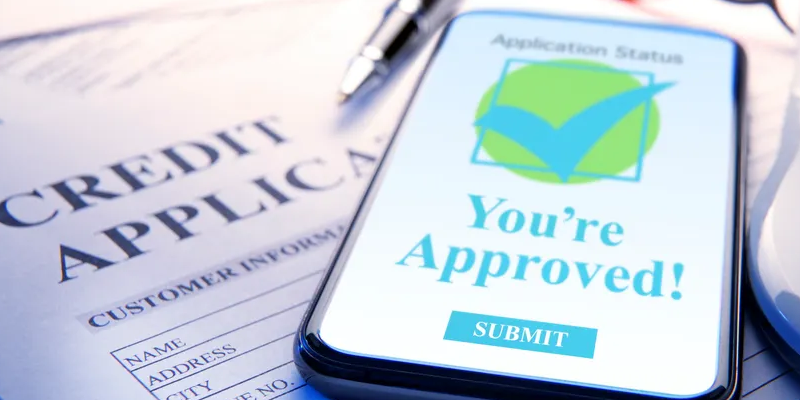What Is the Right Time to Apply for a Credit Card?
Jan 12, 2024 By Triston Martin
The credit card industry is always releasing new, enticing promotions. With so many enticing sign-up incentives available, it can be tempting to try everyone. There is a limit to how many credit cards you can apply for at once due to restrictions imposed by banks and the effect on your credit score. To what extent should you seek out new credit card offers?
How often should you apply for a credit card, how doing so will affect your credit score, and why you might want to wait? This information is also available here.
When is the Right Time to Apply for a New Credit Card?

Each person may have a different ideal number of credit cards. And it does depend on your situation. However, you should take into account certain broad recommendations.
First, you should be aware that different credit card companies have different policies regarding the frequency you can apply for new credit.
The Federal Trade Commission (FTC) advises consumers to apply for only the amount of credit they truly require. A hard inquiry may be performed in response to a credit application. Credit scores can dip after a rigorous inquiry, according to FICO®, but only by a few points at most. The Consumer Financial Protection Bureau (CFPB) states that credit scoring models commonly consider the frequency and recency of credit applications.
It's wise to take a breath and assess your financial situation before applying for a new credit card. It would be beneficial to discuss your situation with a certified financial planner.
The Impact of Credit Card Applications on Your Credit Score
There are several ways in which a credit card application can damage your credit score. What will happen to your credit history and score is as follows:
1. Credit Utilization
The sum of your credit limits grows if you get a new credit card. Your credit score will rise due to a lower credit utilization ratio, presuming all else is equal. The ratio of your outstanding debt to your available credit is a percentage known as your credit utilization ratio. Credit utilization is the percentage of your available credit that you are using. Your utilization would decrease to 25% from 30% if you opened a new credit card with a $10,000 limit, giving you a total of $20,000. Credit utilization rates below 30% are deemed optimal by experts.
2. New Credit Inquiry
The credit card provider will check your credit history if you apply for a card. Your credit score can drop as much as five points for each hard inquiry. Credit bureaus may record your hard queries for as long as two years, but they will only affect your score for the first year. Too many credit card applications in a short time frame might have a disproportionately negative effect on a credit score.
3. The Average Age Of Accounts
When you open a new account, the average age of all your accounts will decrease. The effect is conditional on the number and age of your other open accounts. The effect is much smaller for those with an established credit history.
4. Credit Mix
Lenders prefer applicants with a diverse credit history, as it demonstrates the borrower's financial versatility. Your current credit mix will determine how much of an effect opening a new card will have on this element.
Opening a new card will not affect your payment history. If you don't use caution with your new account and make timely payments, it could harm your credit score. Set up an automatic withdrawal of the minimum payment due to guarantee timely payments.
Things to Think About Before Getting a New Credit Card

If you're considering applying for a credit card, you must do more than get pre-approved.
1. Consider the Timing
When applying for a credit card, timing is everything. The Consumer Financial Protection Bureau recommends, for instance, against applying for a credit card during or just before a mortgage loan application to limit the number of hard inquiries made in a short period.
2. Contrast the Cards
The Consumer Financial Protection Bureau advises consumers to do their homework and compare cards before applying for one. Consider looking into annual percentage rates, fees, prizes, and more.
Find the best credit card for your needs using Capital One's comparison tool, which allows you to narrow your search based on parameters like minimum credit score, reward type, and more.
3. Monitor Your Credit Report
Knowing your credit score is important whether or not you plan to apply for a new credit card. Capital One offers a service called CreditWise that can help you keep tabs on your credit.

Triston Martin Dec 24, 2023
Understanding 1%/10 Net 30 Payment Terms: Example, Needs, and Dynamics
6929

Susan Kelly Dec 22, 2023
What Are Liquid Assets? Exploring Role and Impact in Financial Health
48698

Triston Martin Feb 06, 2024
U.S Bank Home Equity — A Comprehensive Review
15873

Susan Kelly Jan 03, 2024
What is FHA Streamline Program?
83858

Susan Kelly Dec 21, 2023
The Rise and Fall of General Electric (GE): A Comprehensive Guide
50865

Susan Kelly Dec 25, 2023
Adjudication – The Important Step of Legal Ruling
42502

Triston Martin Feb 05, 2024
Financial Milestones by Age 40: What Should You Save?
66058

Susan Kelly Feb 02, 2024
Unlock Elite Travel: Top Credit Cards for Admirals Club Access
25216